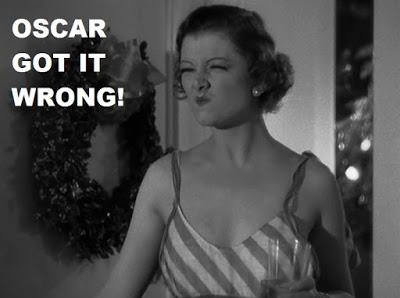John Garfield: Body and Soul
Ronald Colman: A Double Life (winner)
Gregory Peck: Gentleman’s Agreement
William Powell: Life with Father
Michael Redgrave: Mourning Becomes Electra
What’s Missing
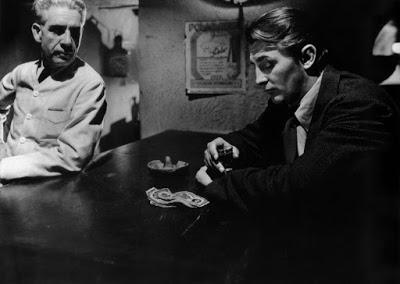
So many good performances from this year, and while the collection of nominations isn’t bad, there are a few that I think are significant misses for this year. I’d love to include David Farrar in Black Narcissus in this list, but he feels far more supporting than main. Tyrone Power could have swung a nomination for Nightmare Alley, but it’s likely that the film was simply too brutal to warrant serious consideration in 1947. I’m honestly surprised at Rex Harrison’s performance in The Ghost and Mrs. Muir didn’t put him on the list. The final three I’d love to see added are three men who never got their due from the Academy. In no particular order, these are Robert Mitchum in Out of the Past, Cary Grant in The Bishop’s Wife, and James Mason in Odd Man Out.
Weeding through the Nominees
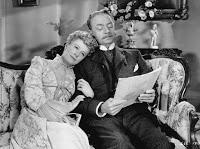
5. I’ve been on record as a fan of William Powell, but I genuinely can’t see nominating him for Life with Father. This isn’t a terrible role and it’s a fine performance from a guy who didn’t tend to give bad ones, but the role is a complete nothing. Powell was enough of a professional to not phone in the performance, but if there ever was one, it could have been this one. I mean, it’s not Powell’s fault that Life with Father is meandering and pointless, but it does make me question why he got a nomination.
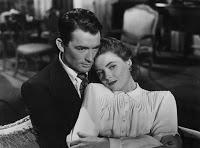
4. I could say something similar about Gregory Peck and Gentleman’s Agreement. I like Peck as an actor and I even like this movie well enough, but there are plenty of capable actors who could have played this role without a huge loss in quality from Peck. This isn’t a knock on Peck himself, but a comment on the role. In short, I think this is a case where the role itself was nominated rather than the performance specifically. This happens all the time, and while it’s a shame when it does, it’s explainable—and it would have felt odd to have the Best Picture winner not get a nomination in this category.
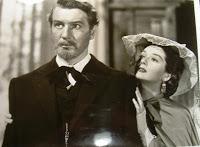
3. Michael Redgrave gives a performance in Mourning Becomes Electra that is initially difficult to qualify. For the first hour of the film, I had no idea of why he would have been nominated for this role. And then the second half of the film happens and it becomes apparent that the nomination wasn’t a favor to someone or a case of politics. Based on the unnominated performances of this year, Redgrave is right on the cusp of making the cut for me, but at least it’s a nomination I understand, even if I only half-heartedly endorse it.

2. A Double Life gets a lot of things wrong, like the tone of the third act and some of the pacing, but none of what it gets wrong is the fault of Ronald Colman. Colman, who won this Oscar, gives a gripping performance as a man who becomes far too involved in a role to act rationally. It’s a damn good performance, one that Colman is rightly remembered for. I can’t even really be too upset with the Academy for awarding him the Oscar. It’s rare back in this era that someone would win for playing such a morally conflicted role.
My Choice
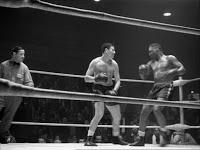
1. In the world of this blog, ties always go to the Academy, and that’s the only reason we don’t have a different result here. Based on the five nominations, my winner is John Garfield in Body and Soul, and I’ll add the caveat that I am a big John Garfield fan. In a completely open field, I’d have a hard time choosing between Garfield and Robert Mitchum in Out of the Past, which I find to be one of his best performances. I’d likely have Cary Grant in third. But, since ties do go to the Academy, Oscar only got this one wrong instead of failing in a much more serious way.
Final Analysis
